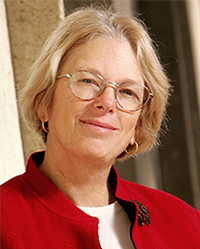Distinguished Lecture: What’s At Stake in the Oracle v. Google Software Copyright Case?
Pamela Samuelson
Distinguished Professor of Law & Information, UC Berkeley

Watch the video »
Abstract:
Freedom to reimplement application program interfaces (APIs) in independently written software is the key issue at stake in the Oracle v. Google case. Oracle has claimed that the Java API is protectable by copyright law and that Google’s use of parts of the Java API without a license is copyright infringement. Google initially won its challenge to the copyrightability of the Java API on the ground that it was an unprotectable functional system, but this ruling was reversed by an appellate court in 2014. Because Google also raised a fair use defense, the appellate court sent the case back for retrial on the fair use issue. Last May the Oracle v Google fair use issue was tried to a jury, which ruled in Google’s favor. Oracle has appealed this verdict and claims that as a matter of law, it is entitled to a judgment in its favor that Google’s use was unfair. The case has attracted numerous amicus curiae (friend of the court) briefs which take strongly conflicting views about fair use and whether the law should allow programmers the freedom to reimplement APIs.
Bio:
Pamela Samuelson is the Richard M. Sherman ’74 Distinguished Professor of Law and Information at the University of California at Berkeley and a Director of the Berkeley Center for Law & Technology. She has written and spoken extensively about the challenges that new information technologies pose for traditional legal regimes, especially for intellectual property law. She is co-founder and president of Authors Alliance. She is a member of the American Academy of Arts & Sciences, a Fellow of the Association for Computing Machinery (ACM), a Contributing Editor of Communications of the ACM, a past Fellow of the John D. & Catherine T. MacArthur Foundation, and an Honorary Professor of the University of Amsterdam. She is Vice Chair of the Board of Directors of the Electronic Frontier Foundation. She joined the Berkeley faculty in 1996 after serving as a professor at the University of Pittsburgh Law School. She has visited at Columbia, Cornell, Harvard, and NYU Law Schools.